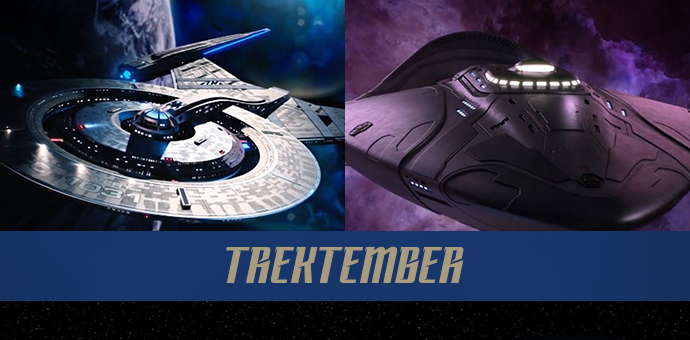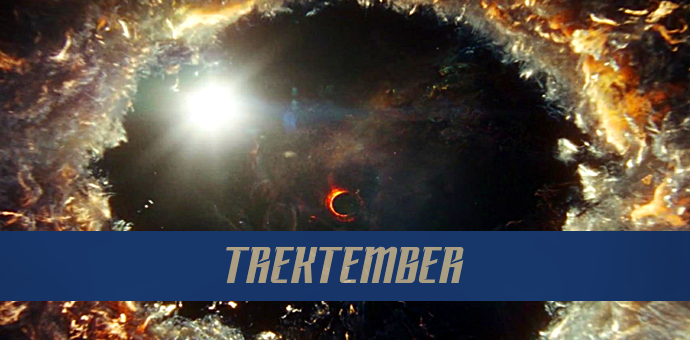This month is Trektember, and we’re trying to answer two big questions – “What is Star Trek?” and “What does Star Trek have to say about Christian faith?” – by looking at the first seasons of Star Trek: Discovery and The Orville. And since the laconic and canonical answer to “What is Star Trek?” is currently “Discovery,” we thought we’d start there.
What is Star Trek?
At its core, I believe the underlying foundation of Star Trek is “us, as our best selves, out there.” Star Trek is about humanity becoming the best that we can be and then going out into the cosmos. More than a TV show, Trek is a place where the natures, fears, desires, and dreams of humanity can be explored, turned inside out, met on a metaphysical level, or deleted entirely to see what might happen.
Discovery may not show us the best of humanity yet, but it does show us the early and hopeful days of what is coming, the world we remember from Kirk, Picard, Sisko, and Janeway. Bridging the gap between Jonathan Archer and James T. Kirk, Disco shows us a world that hopes to be what they’ll one day become. Star Trek has always been about humanity trying to be better; we see that put into stark relief here, as the Federation is at its lowest point. Trek has always explored these concepts by running them through the wringer.
And it’s always been a product of its time. In the early days of The Original Series, the overriding fear of the culture was a monolithic, unfeeling, uncaring other society that relished our destruction and focused on building up their ability to attack and defeat us. And, so, the Soviet Union became the Klingon Empire.
In the 1990s, our fear of being subsumed by our technology was personified as the Borg. In 2009, our fear of a radical terrorist ideologue became Nero. And in 2018, our fear of immoral leaders, weaponized falsehood, and hidden evil became the overriding fear that Michael Burnham faces in Star Trek: Discovery.
Thankfully, it’s a hopeful representation.
What does Star Trek have to say about Christian faith?
Science Fiction is a Christian genre.
That might seem like a surprise, given the number of sci-fi works and creators that are unabashedly atheists or otherwise secular. But God uses all kinds of stories and all kinds of storytellers to reveal Himself, and science fiction is particularly suited to deal with deep, meaningful issues that other genres simply cannot handle with the same level of subtlety or power. And the genesis of the modern science fiction story, which can examine old problems as personified characters on new worlds, can be found in the frames of Star Trek.
God stepped into the normal world and presented Himself as a glorious, beautiful, mysterious Savior with power we couldn’t comprehend that broke the reality we thought we knew. Even today, He invites us to explore Him, seeking out new life within His depths. And He encourages to see ourselves in the stories we tell and the reflections of ourselves we see in the Bible.
This incarnational exploration is something that Star Trek: Discovery touches on time after time. It gives us many options to see Christ and His story throughout its first season, and we’re excited to explore that this month.
Our first exploration of Christ in Discovery is Mike Poteet’s article on The Vulcan Hello, which went live at the same time as this article.
So, is it Star Trek? I think so. It’s not perfect, but I think it lives well in a setting that explores the themes, hopes, fears, and dreams of humanity. But the real question is, what does it make you think about? What questions does it ask? What does it force you to contend with?
Hopefully Trektember can help with that.
• • •
Trektember is an annual series about Star Trek; this year, we’re examining the first seasons of Star Trek: Discovery and The Orville. For more information on this series, click here; or, to read every article from the beginning, click here!


